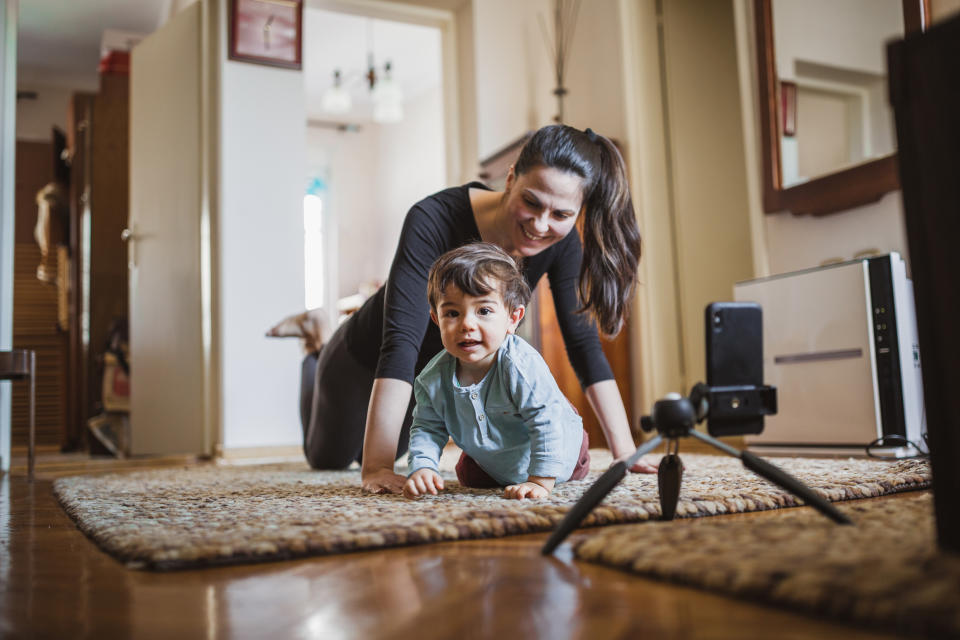This Man's "Mommy Vlogger" Wife Ignored His Request To Keep Their Children Out Of Her Content, And It Started A Discussion Around The Dangers Of Featuring Your Kids In Content
It's no secret that the relationship most people have with social media borders on "oversharing." It's become more and more normalized over time to broadcast your real life online for the world to see. What started out as snapping a pic of your meal and posting it on Instagram has developed into documenting the entirety of a 27-step skincare routine to record a "get ready with me" video moments after waking up. Posting intimate details of our lives has become a social standard even beyond just sharing on private social media for close friends and family — especially now that content can be monetized.
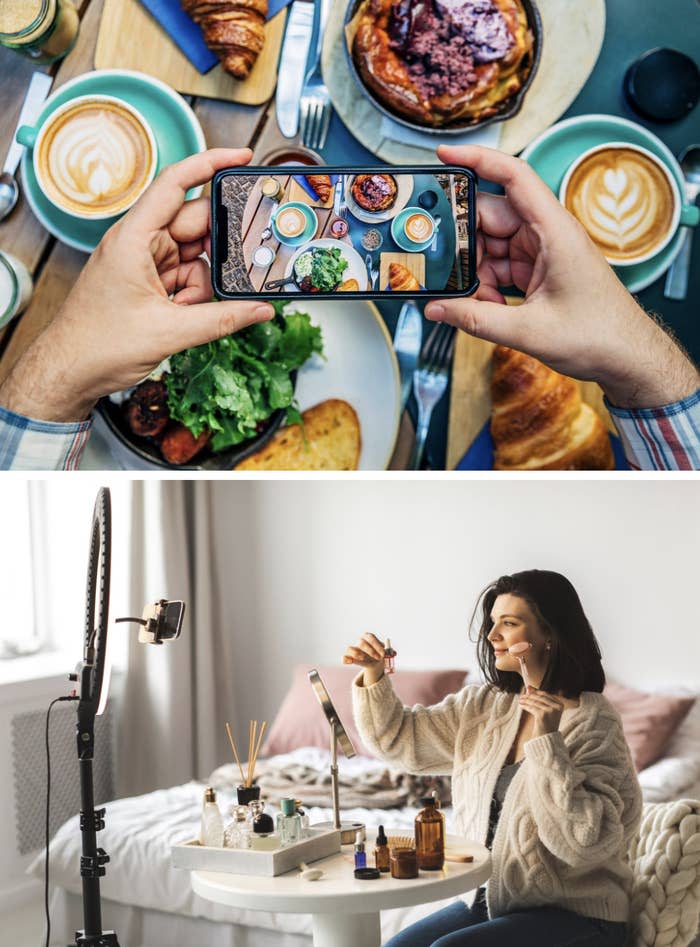
But, what happens when parents who constantly share their lives online include documenting the lives of their kids, too? That's when social media presence creeps into ethically questionable territory. This topic of "mommy vloggers," aka creators who focus on parenting content, complete with daily videos featuring their children on camera, has been a heated topic of discussion online because the kids cannot consent to be on camera the way adults can.
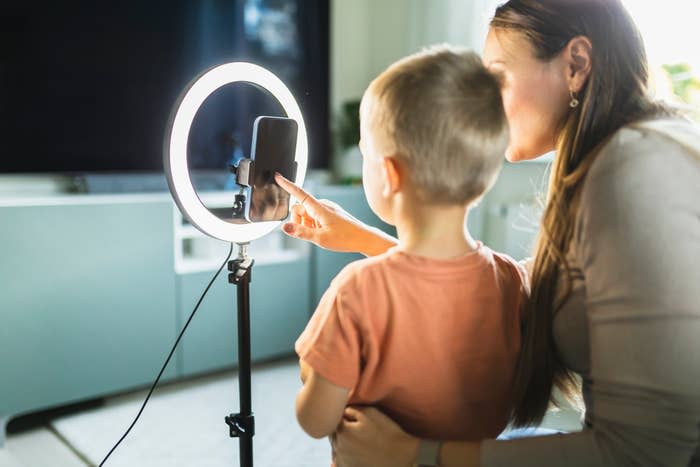
While scrolling the "Am I the a-hole?" subreddit, I saw that Reddit user u/throwrasutwy posted his experience and consequentially fired up a discussion around this very subject.
"My wife wants to be an influencer on TikTok and YouTube. She has been creating mommy content and content about her day-to-day life," He said. "When she told me this is something she wanted to do, I didn’t have a problem with it. I only said that I don’t want our children (ages two and four) in ANY of her content."
"I didn’t monitor her channel because it didn’t really seem necessary. I recently watched her channel because I thought it would be cute to see what she does in her day-to-day life. I found our childrens' faces in almost all of her content."
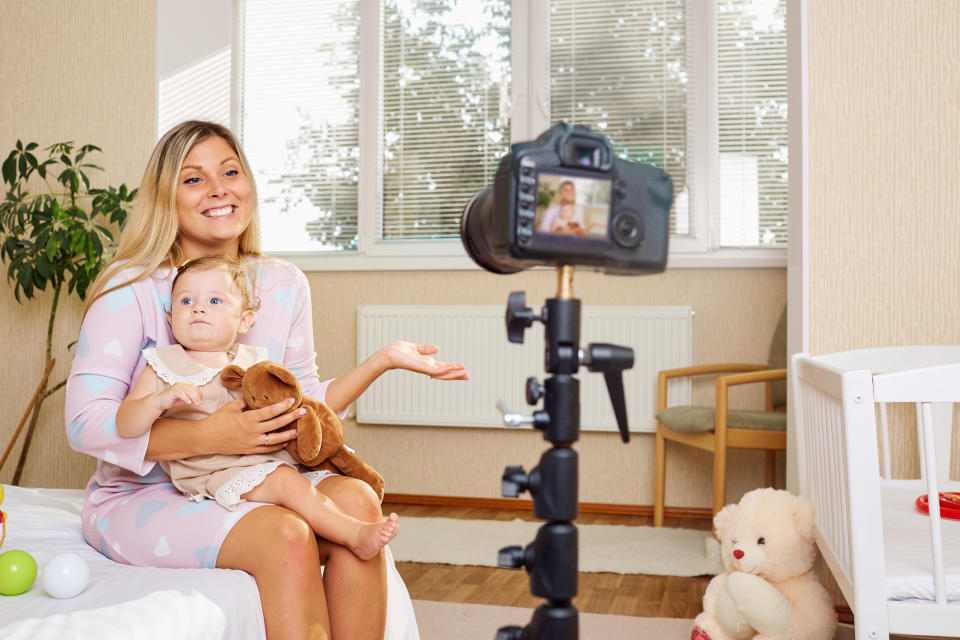
"I feel like a lot of the time when you see that children make profit, they become less of your kids and more of a product and your interactions become more performative," He continued. "I can see the same thing has happened in her because she posted a video of her getting our 2-year-old out of a tantrum and how she deals with it...but how is your first instinct to record and hold a camera while our baby is crying?"
"I told her straight up that she needs to remove all of it. She said that she doesn’t think this is a big deal. She started crying and saying that she built this up and this is her dream and deleting her content will ruin it. I said, 'I simply don’t give a f*ck. If you don’t delete it, I will consider a divorce.'"
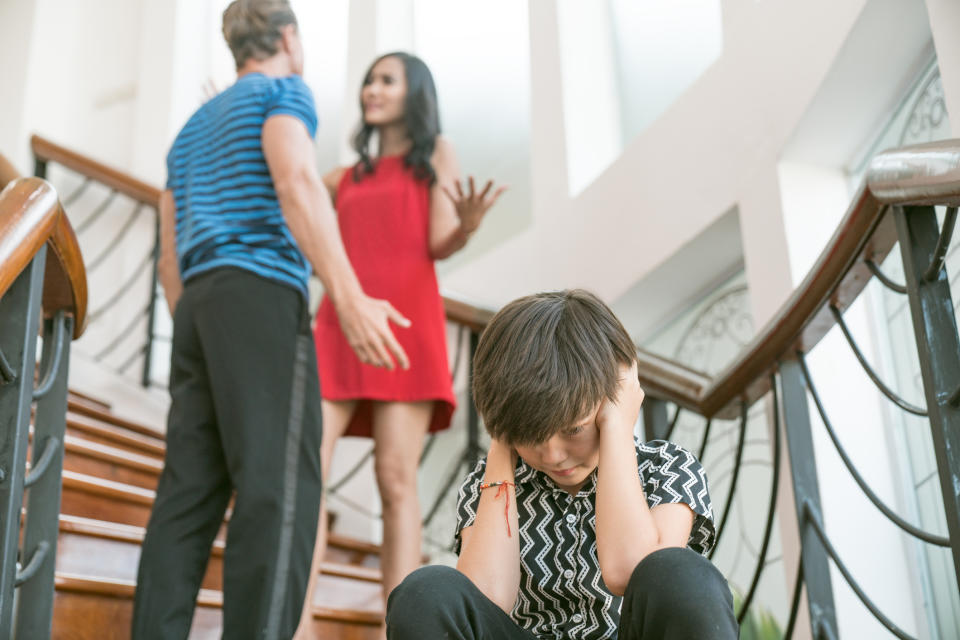
Okay, there's a lot to unpack here. The comments are filled with support for the husband for advocating on behalf of his children and their privacy:
"People who make profits from their kid's misery are the a-holes here, and it seems like your wife is more interested in being a TikTok celebrity than being a caring wife and mother. No one should ever be shilling out their kids for likes and imaginary internet points."
"I think parents doing this, deliberately being intrusive and posting the day-to-day life of their kids for the world to see, feels abusive to me. They can't consent. They don't understand.
All for money."
"It's like a version of The Truman Show but the internet version for thousands of families."
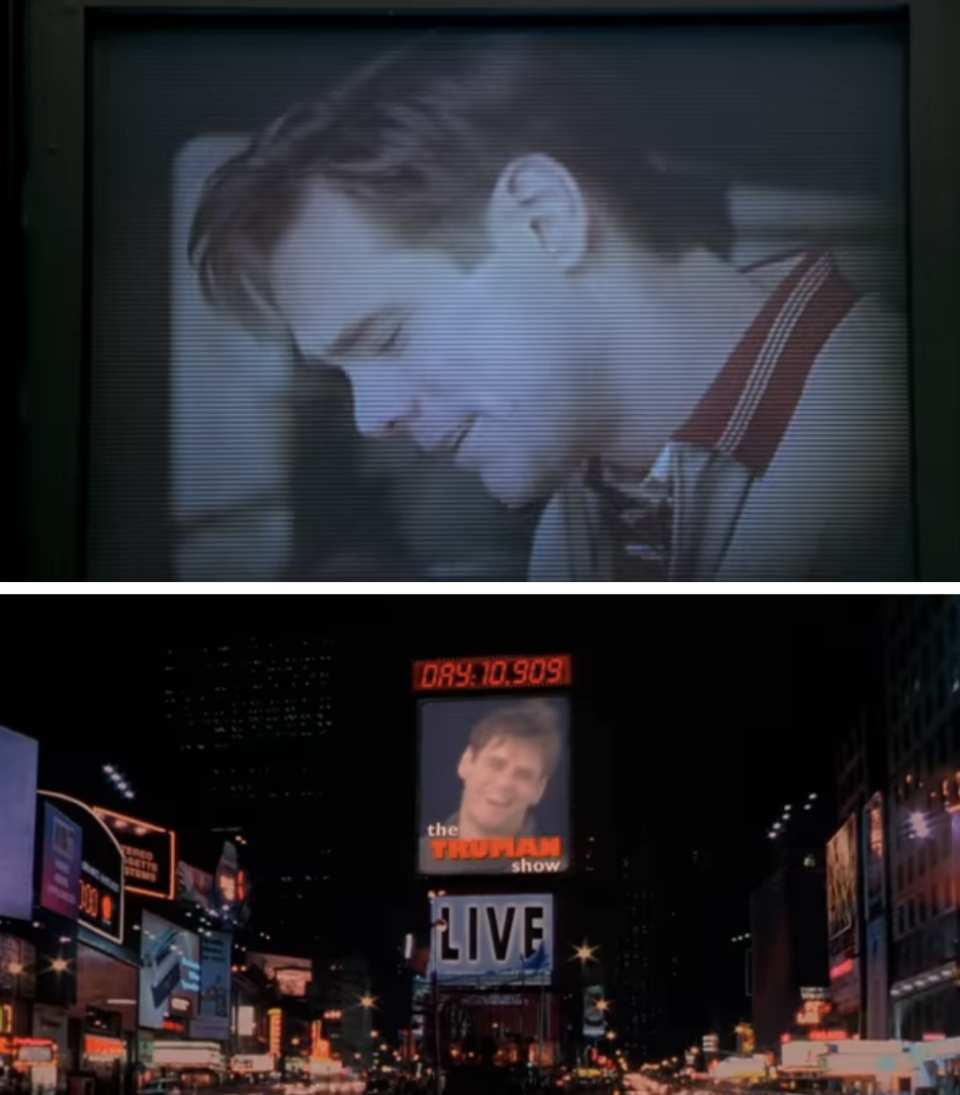
While parenting content can provide an accessible and educational outlet for other parents to seek answers to their parenting questions along with validation from others also raising young children, the risks of "sharenting" are so glaring that the risks appear to outnumber the benefits:
"There’s going to be a whole generation of traumatized adults who had the entirety of their lives exploited by their parents on the internet for profit. It needs to be illegal."
"Monetizing children is f*cking gross. You can have a successful mommy channel without exploiting those you are meant to protect and claim to love."
"She can be a content creator without kids in the videos. There are plenty of things to do. She can still do mommy content without the kids — packing their lunches, how she gets ready, talking about how she handles discipline, etc."
Whenever something as vulnerable as raising children becomes performative, then the authenticity gets called into question. Are parenting content creators experiencing their children's lives in terms of likes and shares? When the content revolving around your kids pays the bills, are the parents too concerned with the lighting and aesthetic to be fully present in the moment? How is this kind of overexposed childhood going to affect kids in the long term?
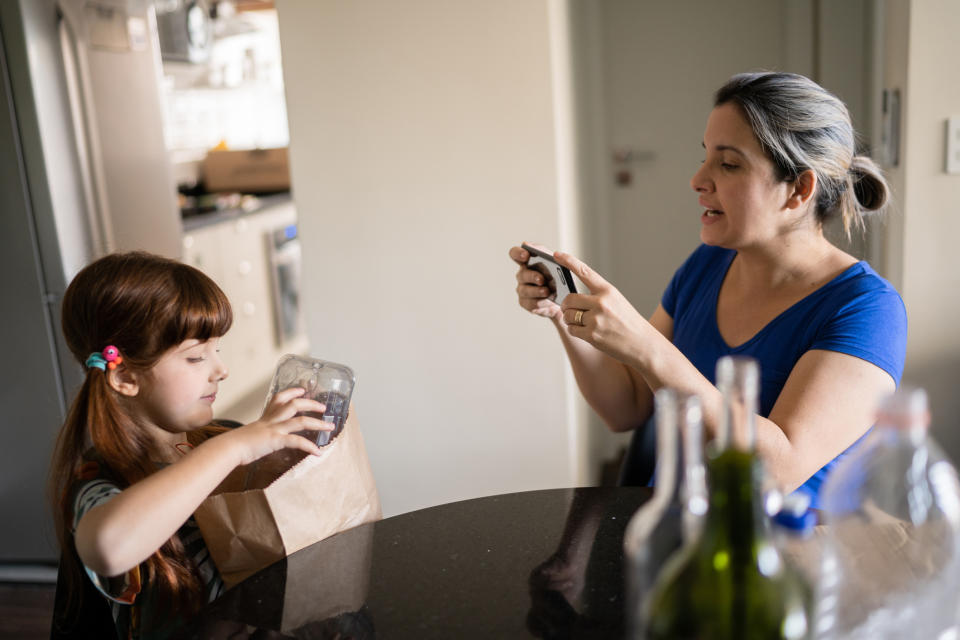
"A business model that is built on exploiting your own kids is both ethically dodgy now and building up problems for your future relationship with your kids."
"I feel so sorry for all those poor kids whose parents exploit them for (supposed) social media fame. They’re too young to consent and the parents treat them like props for their channels."
Though we all definitely have our opinions on the subject — I was curious to see what experts have to say. HuffPost interviewed Stacey Steinberg, a law professor at the University of Florida’s Levin College of Law and the associate director of the Center on Children and Families.
"It’s very rare that parents are sharing maliciously, but they haven’t considered the potential reach or longevity of what is happening with the information they’re posting," She says. “The reality is that the data shared by parents could be revealed by Google search algorithms for years to come, and we don’t know what our children’s goals might be when they get older.”
"Children who grow up with a sense of privacy, coupled with supportive and less controlling parents, fare better in life. Studies report these children have a greater sense of overall well-being and report greater life satisfaction than children who enter adulthood having experienced less autonomy in childhood," Steinburg wrote in her 2016 paper, “Sharenting: Children’s Privacy in the Age of Social Media. "Children must be able to form their own identity and create their own sense of both private and public self to thrive as young people and eventually as adults."
